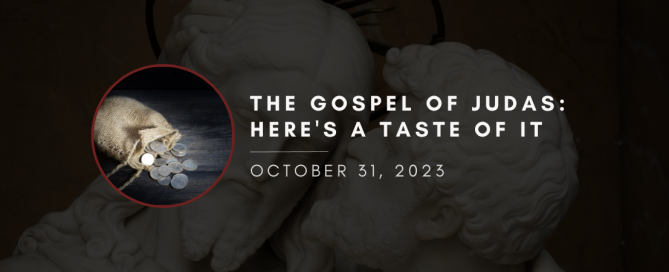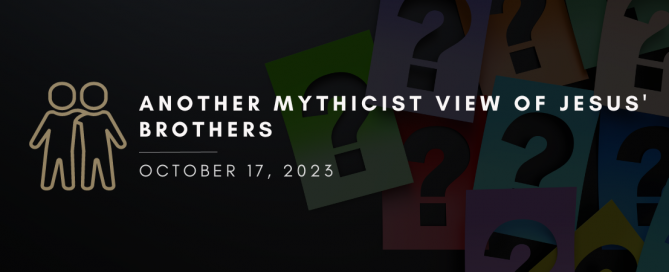The Gospel of Judas: Here’s a Taste of It
Here is the first bit of the Gospel of Judas from the translation of my colleague Zlatko Pleše in our book The Other Gospels. The first paragraph is the explanation of where we got the text from; then the translation of the opening scene. After this bit here, the Gospel gets very strange, at least to most modern readers. But as you can see, it is really interesting. At the end I give the bibliography for further reading that we cite in our book. This translation is based on the Coptic text of Rodolphe Kasser, and Gregor Wurst, eds. The Gospel of Judas: Critical Edition. Washington, DC: National Geographic, 2007. New portions of the Gospel appeared in 2006, when the one-time owner of the manuscript declared bankruptcy and his remaining antiquities collection was turned over to a bank in Ohio; included in this collection were numerous small fragments of the Gospel of Judas. These have been photographed and they have begun to be studied; for our translation of the account here we have been able [...]



